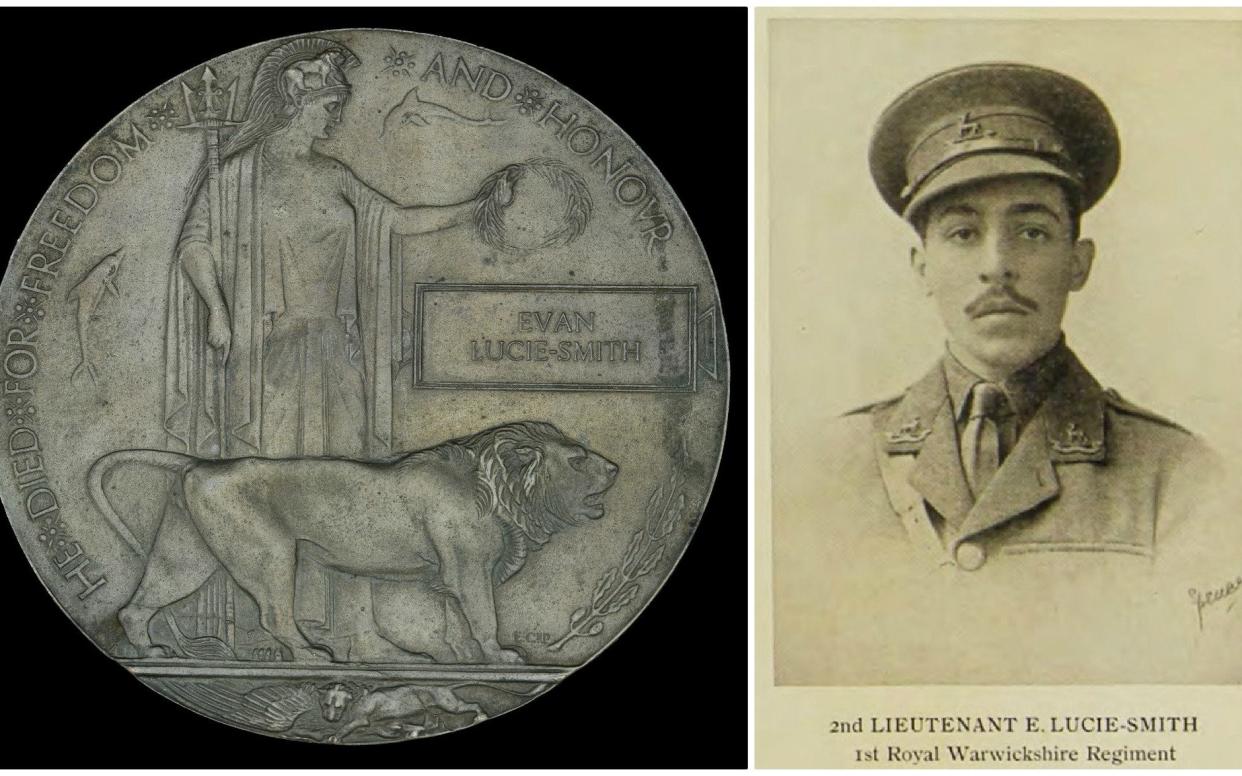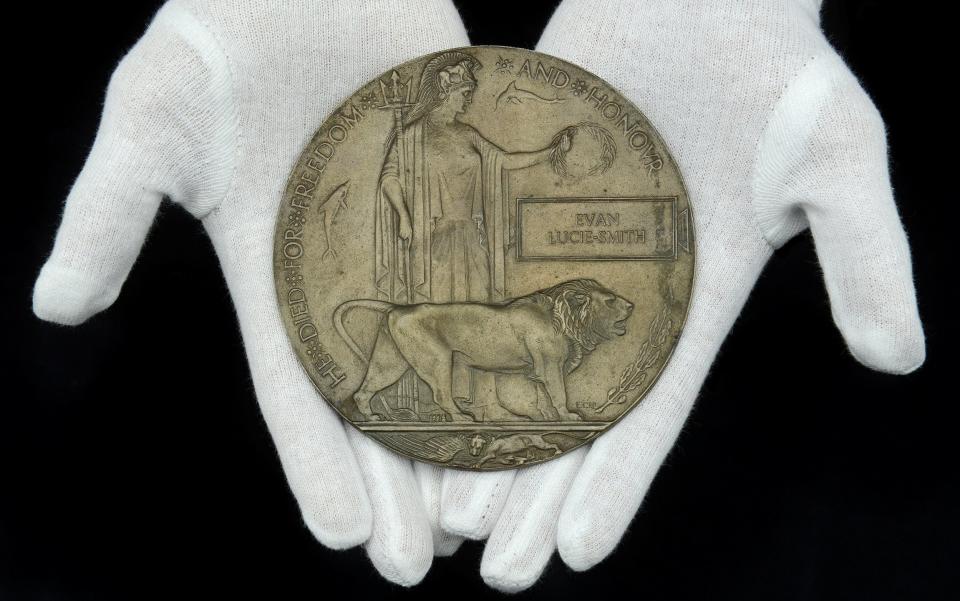Newly discovered Great War plaque rewrites history books to reveal Walter Tull was not the first black officer to serve in British Army

- Oops!Something went wrong.Please try again later.
A newly discovered war plaque has rewritten history books to reveal Walter Tull was not the first black officer to serve in the British Army.
A Great War plaque of Lieutenant Euan Lucie-Smith has cast doubt on accepted knowledge about the first black officer to have served in the army.
Until now Walter Tull, a soldier commissioned from the ranks in May 1917, was thought to have been the first officer and the first black serviceman to die in the war.
However, the plaque for Lt Lucie-Smith of the 1st Battalion, Royal Warwickshire Regiment, suggests he was commissioned and died nearly three years before Walter Tull was killed in action during the First Battle of Bapaume on March 8, 1918.
The plaque will be auctioned on November 12 with a guide price of £600 - £800.

Dr George Hay, the Chief Historian of the Commonwealth War Graves Commission, said whilst it is not definitively possible to say Lt Lucie-Smith was the first black officer in the British Army or the first death, his date of commission was certainly very early.
“The British Army at the time was particularly good at turning a blind eye to the vague rules around [nationality] and there wouldn’t have been any fanfare, so there may be more potential candidates.”
Mr Hay said auxiliary regiments had educated non-European officers in the nineteenth century, including an Indian prince in one of the East Anglian Yeomanry regiments.
“There are other black officers but saying who the first was is likely to be hard.”
Like Walter Tull, Euan Lucie-Smith hailed from a mixed heritage background.
Born in Jamaica in 1889, his father, John Barkley Lucie-Smith, was from a long line of distinguished white colonial civil servants. His mother, Catherine “Katie” Lucie-Smith, was the daughter of distinguished black lawyer Samuel Constantine Burke who advocated for the black communities of Jamaica in the 19th century.
After finishing his education in Britain, Lucie-Smith returned to Jamaica where he was commissioned into the Jamaica Artillery Militia on November 10, 1911.
He was later commissioned as a Second Lieutenant into the regular force of the Royal Warwickshire Regiment just six weeks after the outbreak of the war.
He was killed in action on April 25, 1915, at the Second Battle of Ypres in Belgium just six weeks after being deployed.

The antique was discovered by former Member of the European Parliament, James Carver, a keen collector of medals from the Victorian and Edwardian era.
Mr Carver said: "I found it through a medal dealers site. Clearly they hadn't realised the significance of the item."
Mr Carver researched the London Gazette for dates of commission.
"To my mind he's the first black officer,” Mr Carver said.
Lt Lucie-Smith landed in France on March 17, 1915 and was reported as missing just over a month later.
Records show he was later confirmed as killed in action after being shot in the head on April 25, 1915, aged 25, during the Second Battle of Ypres - making him a casualty two years and eleven months before Walter Tull.
A note from the time written by Private F. Jukes, from Suffolk Hall Hospital, Cheltenham, stated: "Lieut. Lucie-Smith - was told by his servant that he was killed, and had seen him dead. Shot through the head".
Lt Lucie-Smith has no known grave but is commemorated on Panel 2 to 3 of the Memorial in Ploegsteert - the area nicknamed Plugstreet by the Tommies that served there - in Belgium.
He is also commemorated on the Berkhamsted School Memorial, the Eastbourne College Memorial and has an entry in "Jamaica in the Great War".

